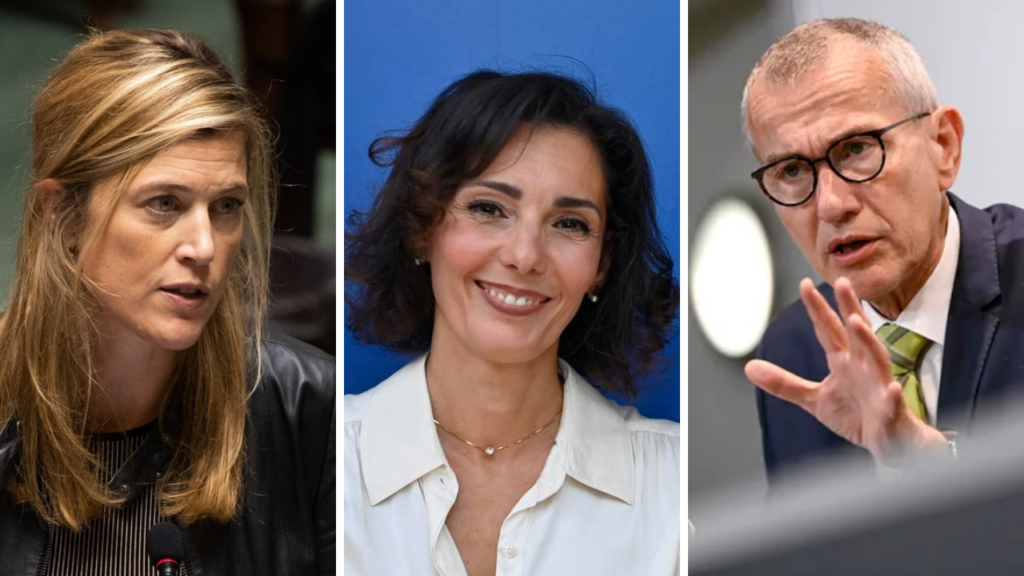Belgium's various governments currently have a total of 13 non-elected ministers and state secretaries, with the new Foreign Affairs Minister Hadja Lahbib the latest example.
Lahbib was a reporter for Belgium's French-speaking public broadcaster RTBF before she was appointed on 15 July as the Federal Government's new Minister for Foreign Affairs by the leader of the Francophone liberal MR party Georges-Louis Bouchez.
Following her appointment, the Federal Government now has six ministers and secretaries of state who have never been MPs.
In addition to Lahbib, the non-elected ministers and state secretaries currently in the Federal Government are Health Minister Frank Vandenbroucke (Vooruit), Interior Affairs Minister Annelies Verlinden (CD&V), State Secretary for Budget Eva De Bleeker (Open VLD), State Secretary for Asylum and Migration Nicole de Moor (CD&V) and State Secretary for Relief and Science Policy Thomas Dermine (PS).
The number of non-elected ministers even rises to 10 when taking into account all governments in the country, and to 13 when ministers who had been MPs in the past but were not elected during Belgium's last elections in May 2019 are also considered.
Not a new tradition
The political parties that appointed the most non-elected ministers were MR (4 in 8) and the Flemish Christian-Democratic CD&V party (3 in 6).
Only the government of the country's German-speaking Community consists entirely of elected MPs. In the rest of the country, only the Flemish right-wing N-VA and Flemish ecologist Groen parties chose all their ministers from their MPs.
Striking as this may seem, this is not a new tradition, according to political scientist at Crisp (the Centre for Sociopolitical Research and Information) Benjamin Biard: "It is true that this is quite pronounced in Belgium. I think that each situation has to be analysed separately, depending on the context, the party and even the party president," he told La Libre. "I would be cautious about making generalisations in this regard."
There can be numerous motivations for appointing a non-elected minister, Biard explains: "Opening up to civil society, renewing the leadership, improving the party's image, the affirmation of a president's authority... there can be many reasons."
He added that appointing ministers is one of the greatest powers which party presidents have. "But they must be careful to respect certain geographical, political and friendly balances, so as not to be challenged too much internally."
Related News
- MR's Hadja Lahbib replaces Sophie Wilmès as Belgian Foreign Affairs Minister
- Nicole de Moor takes oath as new State Secretary for Asylum and Migration
At MR, Bouchez's choices for Mathieu Michel and now Hadja Lahbib caused an intenal stir, Francophone media report. In particular, the appointment of Mathieu Michel (brother of former Belgian Prime Minister Charles and son of former Foreign Affairs Minister) was denounced as "nepotism" by Walloon MP Sabine Laruelle in 2020.
For Lahbib, it was her professional background as a former reporter that came as a surprise to many. She was not part of MR or even the political establishment in general.
The appointment of an unelected minister is always "a double-edged sword," Biard said. "It can dominate the media agenda and put the party in the spotlight. Yet it can also lead to negative repercussions, questions within the party, and even contestations."

